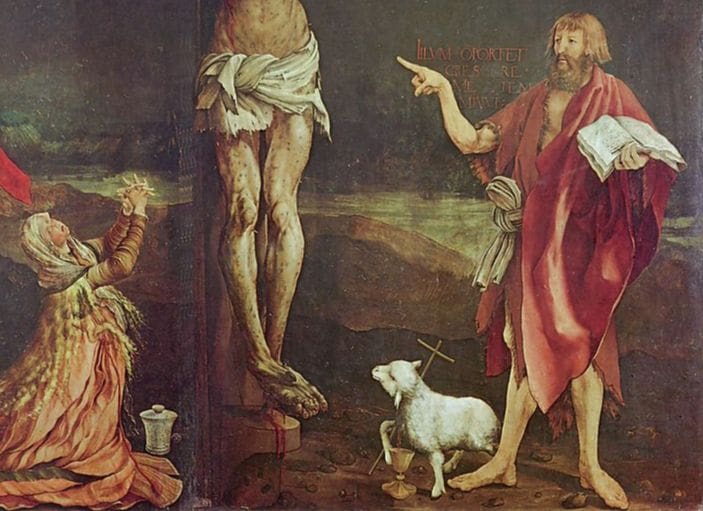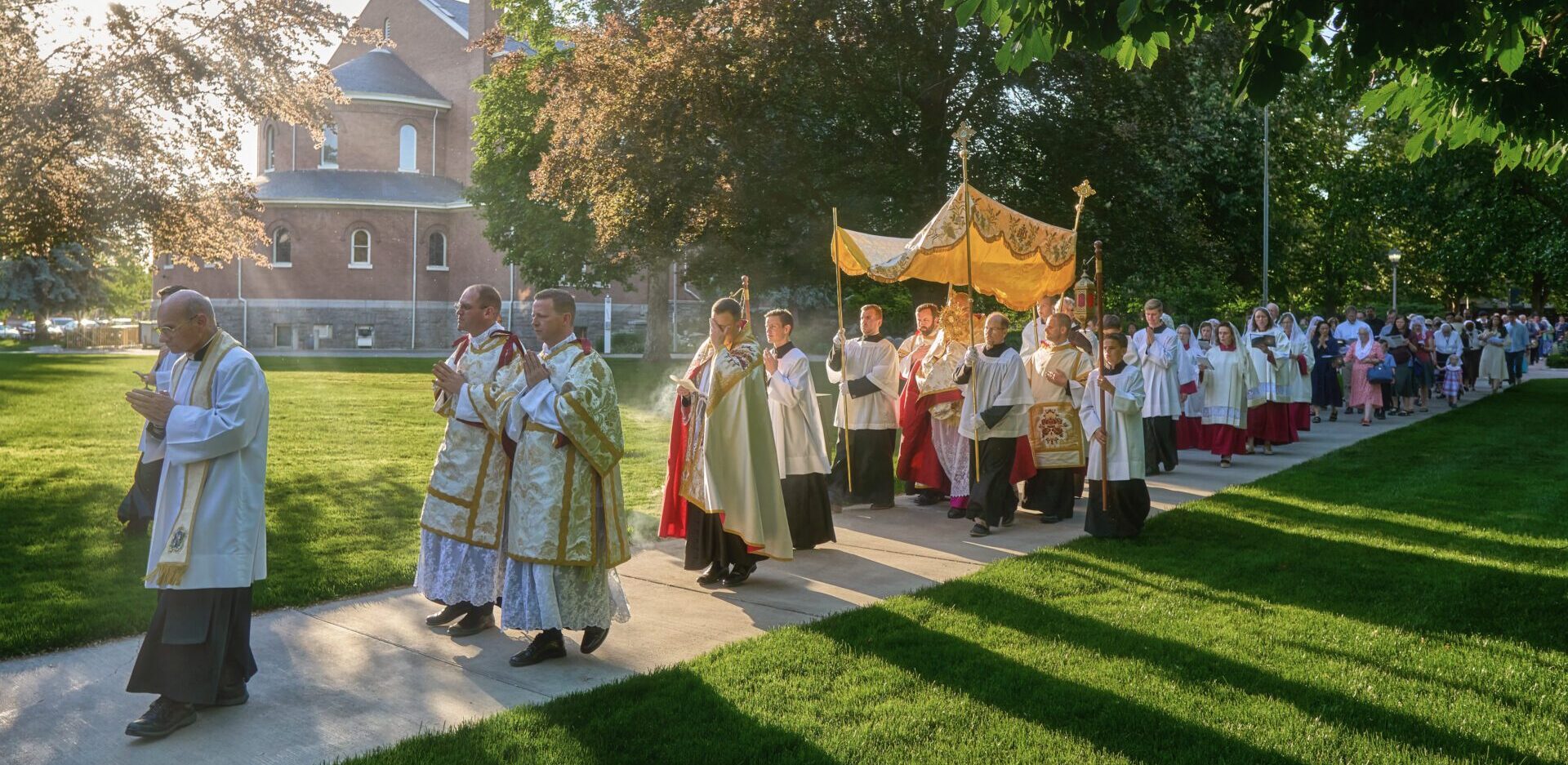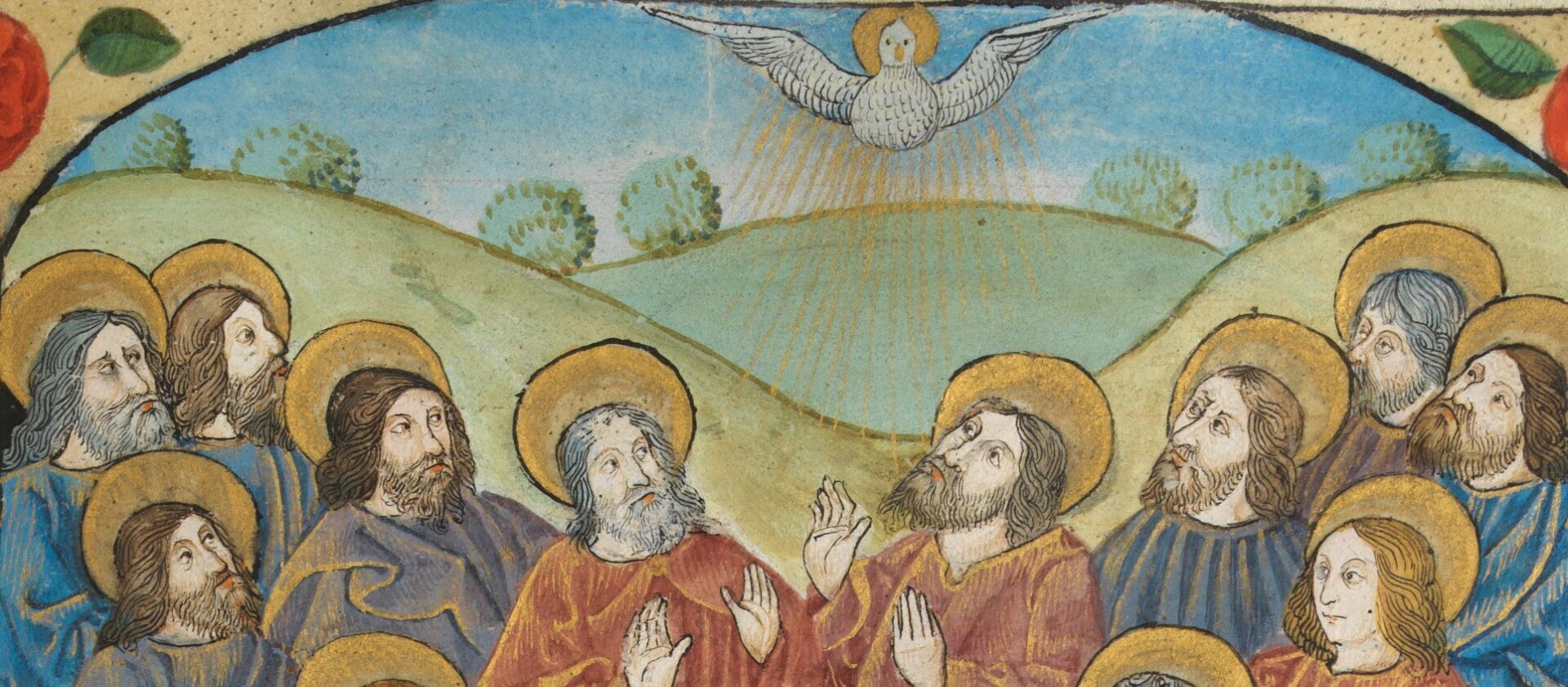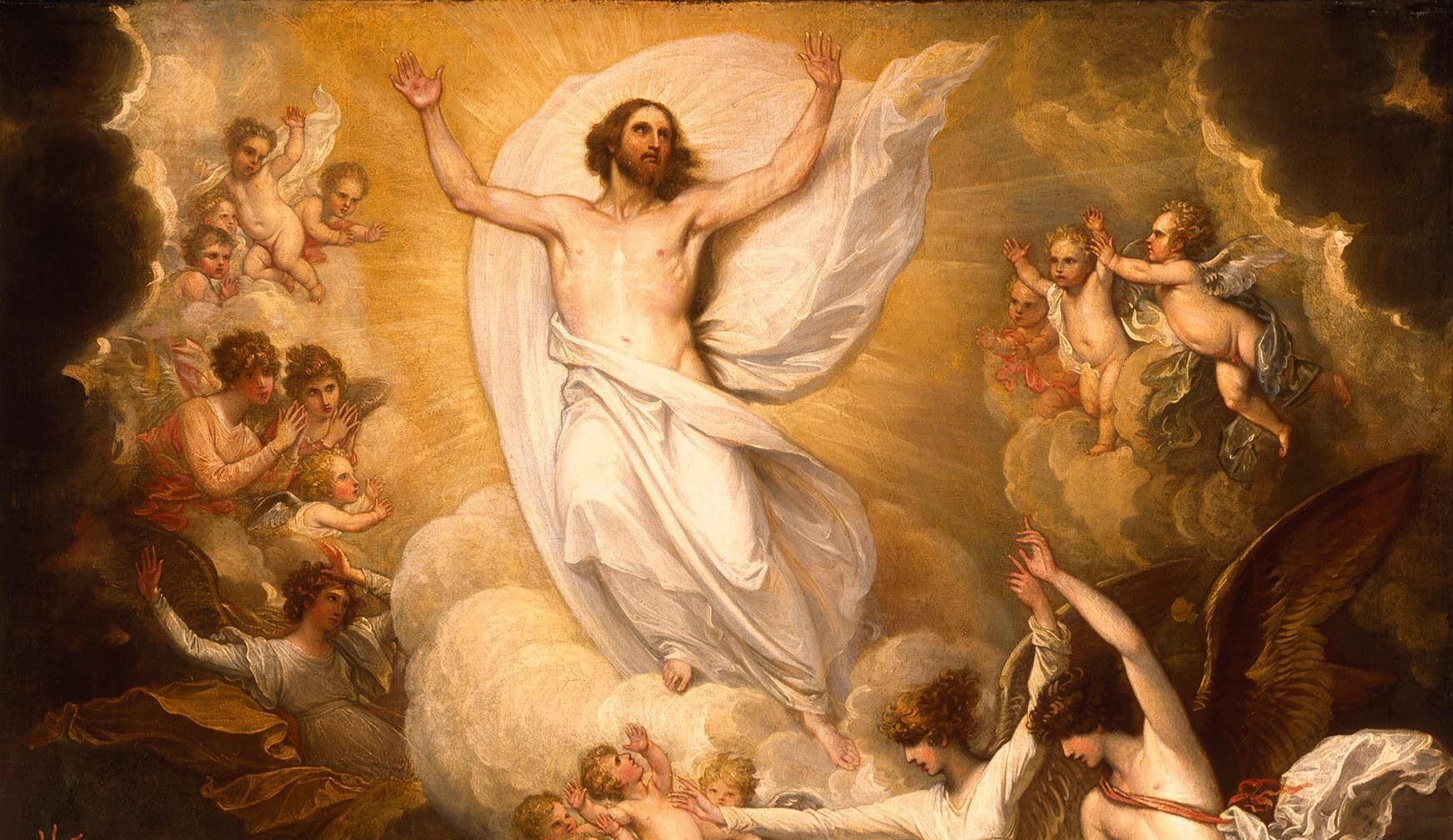“Vernacular” is the term describing a speaker’s native language, and it signifies (from the Latin vernaculus, “domestic” or “native”), at its base, that which “belongs to the house.” Our Church is often referred to as a house: “house of God,” “house of prayer,” or “house of the saints” (see CCC, 2491). It stands to reason, then, that this “house of God and gate to heaven” has its own vernacular. What is the Church’s vernacular? Greek? Latin? Hebrew? English? More fundamental than any of these, the vernacular language of the Church is scripture.
We hear the sacred Scriptures proclaimed at each celebration of the Mass during the Liturgy of the Word. But apart from the Liturgy of the Word itself, echoes of the word resound in the rest of the Church’s prayers. Let’s take a few examples.
St. Paul regularly greets his letters’ recipients with these words: “Grace to you and peace from God our Father and the Lord Jesus Christ” (2 Corinthians 1:2; Ephesians 1:2; Philippians 1:2). When the Church begins Mass, we ourselves receive this same greeting, word for word, spoken to us by the priest-celebrant: “Grace to you and peace from God our Father and the Lord Jesus Christ.”
How does the Church—which is the House of God—say “hello” in her vernacular? After the example of Saint Paul: “Grace to you!”
The Mass also echoes the voice of “one crying out in the wilderness.” The Gospel of John recounts how “John the Baptist saw Jesus coming toward him and said, ‘Behold, the Lamb of God, who takes away the sin of the world’” (John 1:29). As with St. Paul’s words used in greeting, the Church adopts the Baptist’s words to draw our attention to Jesus prior to the reception of Holy Communion. While showing the broken host to the people, the priest says: “Behold the Lamb of God, behold him who takes away the sins of the world.”
But in addition to the priest’s words while showing the host, the words of the Gloria also echo John the Baptist—“Lord God, Lamb of God, Son of the Father, you take away the sins of the world”—as does the Agnus Dei: “Lamb of God, you take away the sins of the world, have mercy on us.”
How does the Church—which is the House of Prayer—direct us to Jesus? Like the model given by St. John the Baptist: “Behold the Lamb of God.”
Still other words from sacred scriptures inform the words of the Mass. The priest’s greeting, “The Lord be with you,” is that spoken by Boaz to the harvesters in the Book of Ruth (see 2:4). The memorial acclamation, “Save us, Savior of the world, for by your Cross and Resurrection you have set us free,” are the words of the Samaritans upon hearing Jesus speak (see John 4:42). And the last words before communion, “Lord, I am not worthy that you should enter under my roof, but only say the word and my soul shall be healed,” are those of the Centurion in Luke’s Gospel (see 7:6-7).
How does the Church speak? What is her vernacular? It is the Bible. And to speak like St. Paul, St. John the Baptist, Boaz, the converted Samaritans, and the faithful Centurion is to become like them and, ultimately, like Jesus himself. May our “mother tongue,” English, also help us speak our “Mother tongue,” scripture.



